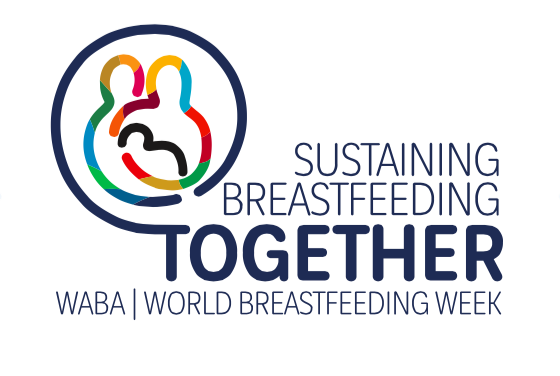Does Stress Affect Breastfeeding Moms?
 August 1 through 7 marks World Breastfeeding Week. As the first Baby-Friendly hospital in Delaware, Beebe Healthcare is dedicated to providing the tools and resources needed to help all mothers and babies get a healthy start with breastfeeding.
August 1 through 7 marks World Breastfeeding Week. As the first Baby-Friendly hospital in Delaware, Beebe Healthcare is dedicated to providing the tools and resources needed to help all mothers and babies get a healthy start with breastfeeding.
Studies have shown that if a mom is stressed, she can inadvertently pass that stress on to her baby. Thankfully, the act of breastfeeding and the skin-to-skin contact it provides can help soothe both mom and baby.
6 Tips to Create a Sense of Calm
New moms can often feel overwhelmed. However, there are ways to create a sense of calm for yourself and your baby. Here are a few suggestions:
- Create a soothing atmosphere. Talk to your partner or family member about helping you create a calm area where you can breastfeed. Make sure you have a comfortable seat that supports your preferred breastfeeding position. Have a table or chair nearby where you can keep a glass of water or a snack. You may also want to play soothing music or watch a fun television program while breastfeeding to help you relax.
- Positive self-talk. Talking to yourself may seem odd, but in some cases you must be your own best friend, especially during the early weeks of breastfeeding. Remind yourself that you are breastfeeding because it is best for you and for the baby. Tell yourself that you can do it and remind yourself that breastfeeding becomes easier as the days and weeks move forward. Both you and your baby will get the hang of it!
- Ditch the naysayers. If you have a friend or family member who is a negative force in your life, talk to them about it. If they are saying you should switch to formula, tell them you appreciate their input, but let them know you will figure it out for yourself and what works for your family. The last thing a new mom needs is a “Negative Nellie” hanging around!
- Connect with your baby. During the months and years that you may be breastfeeding, you have the ability to truly connect with your new baby. Talk to him or her. Keep a journal of your conversations. Talk about goals and dreams and write them down. Soak in all that sweet baby smell and try to relax—the laundry can wait until tomorrow.
- Sleep and walk. The old saying, “Sleep when the baby sleeps,” is a good way to remember to take care of yourself. Often, new moms take advantage of the baby napping to catch up on housework, but also consider resting yourself. If you get to a point when you feel energetic, take advantage of all the free workouts online or on television to get some exercise. If it is nice outside, consider pushing your baby in a stroller to get a walk in. Exercise helps stimulate your body and can help you work out the kinks. Just make sure to not do too much exercise too quickly!
- Get professional help if you need it. If you are having negative thoughts or concerns for the health and safety of your baby, speak up! There is no shame in seeking help if it is going to improve your life and your baby’s life. Professional counselors are available to talk to moms and your primary care physician can help connect you to resources if you are concerned about postpartum depression or anxiety.
Visitors often mean well, but they can also be overwhelming. Limiting visitors is a great way to cut down on stress. And, it gives the new family a chance to settle in and get to know each other.
Some moms feel the first two weeks are the hardest, then it starts to get easier. As a certified lactation consultant, I often tell new moms to try using deep breathing exercises to calm themselves while preparing to breastfeed. Focus on what is going well and not what you may think is going wrong.
Beebe has several certified lactation consultants who work with new moms both during their stay in the hospital and by appointment at the Margaret H. Rollins Lewes Campus.
Beebe also offers free prenatal breastfeeding classes. To learn more or to register, call (302) 645-3726.



